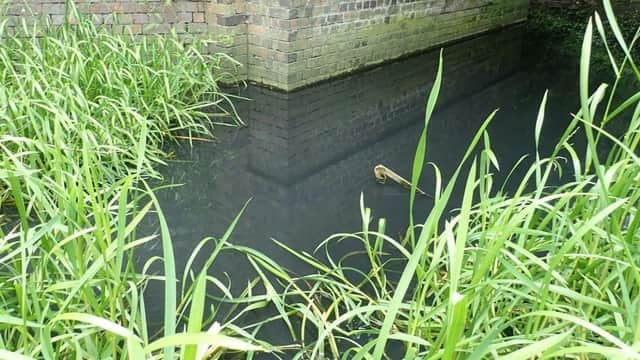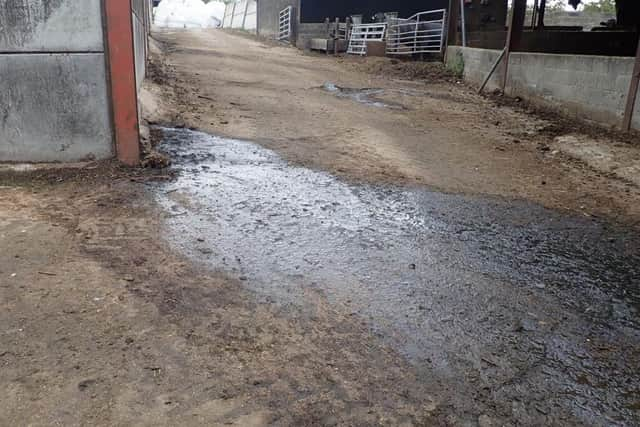Farmer caused death of 80 fish by discharging effluent into brook


Roger Hobill, of Grange Farm, Welby, admitted to taking the action without having an Environment Permit when he appeared at Leicester Magistrates Court on Monday.
The court was told that officers from the Environment Agency were first alerted to the incident when Asfordby Fishing Lakes reported the discovery of dead fish.
Advertisement
Hide AdAdvertisement
Hide AdA water quality assessment took place and officers found elevated ammonia levels and about 80 fish, made up of roach, common bream and gudgeon, had died. Distressed fish were also present and were intermittently gasping for air.


Officers then attended nearby Howell Lake, where a drop in oxygen levels had been detected, and then Welby Brook, about 1.5km upstream.
This led to the officers visiting Welby Farm, where Hobill identified himself as the owner of the farm.
A spokesperson for the Environment Agency said: “This pollution case was entirely preventable and shows that our officers will seek out farmers who ignore the regulations.
Advertisement
Hide AdAdvertisement
Hide Ad“This case has resulted in unacceptable pollution of a local brook, causing significant harm to fish and other aquatic wildlife."
The court was told that Hobill told officers that an internal wall of his silage clamp had recently collapsed and that it may have resulted in a leakage of silage liquor onto the farmyard and into the surface drainage system.
The officers were shown the silage clamp and they saw a cracked internal wall. The silage had escaped through the cracks, onto the yard.
Slurry runoff from the open cattle pen was also present and a combination of slurry, cattle feed and silage liquor was running downhill and into the surface water drain.
Advertisement
Hide AdAdvertisement
Hide AdA small dam had been created, but this was ineffective in stopping the flow. Water samples showed that the brook was clear and uncontaminated upstream while downstream the brook was black and had a septic odour.
The following day, officers revisited the farm to find that heavy rain had caused further run-off contaminated with silage liquor and manure to run into the surface water drains.
The defendant told the officers that he was aware that wet silage was creating waste run-off water but there was a drain which carried it away.
Hobill said that a month or so before the pollution incident he had bunded the drain and was collecting and pumping out the effluent.
Advertisement
Hide AdAdvertisement
Hide AdAfter approximately six weeks, Hobill believed that the run-off had stopped and thought the bund was still in place but never checked. It transpired that the bund had been removed – possibly by an employee or by the cattle walking over it.
Hobill also admitted a charge of failing to construct an adequate silo for the storge of silage.
Magistrates fined him a total of £5,608 and ordered him to pay £9,787.50 costs plus a victim surcharge of £190.
Anyone concerned about pollution or an environmental incident is asked to call the Environment Agency’s 24-7 incident hotline on 0800 80 70 60.